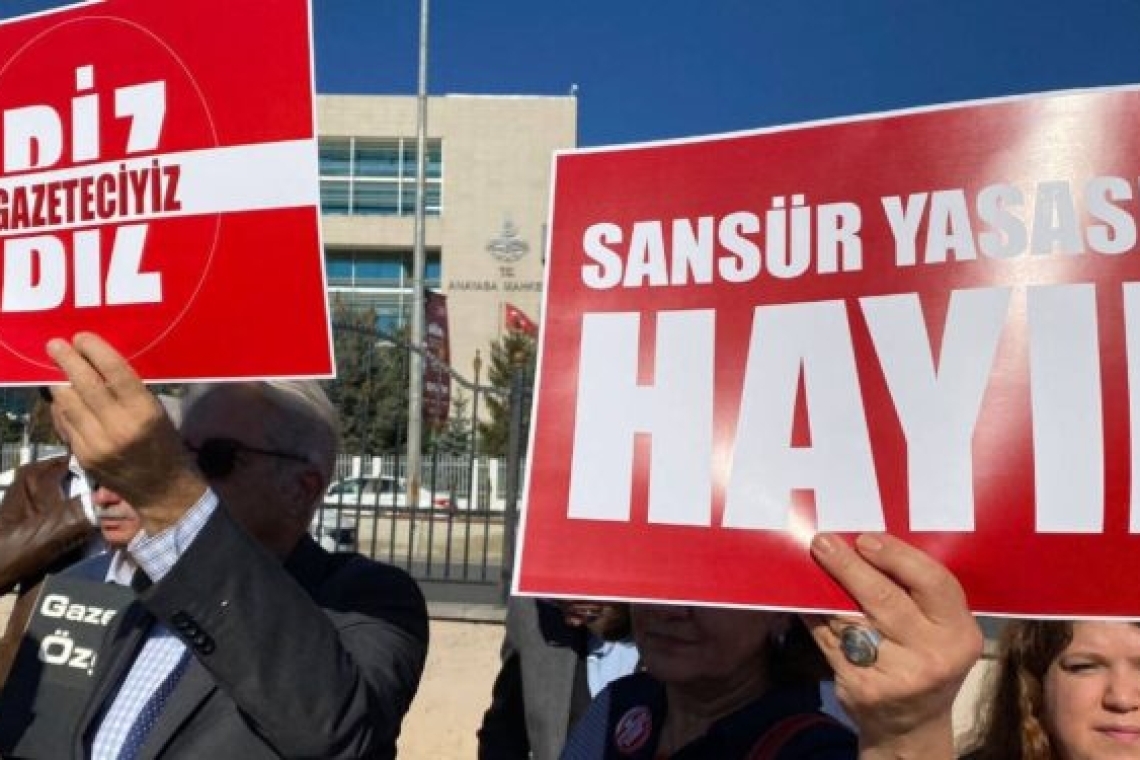DENİZ TEKİN
The controversial “censorship law,” officially added to the Turkish Penal Code (Article 217/A) through Law No. 7418 in October 2022, has led to thousands of investigations and arrests over its two-year implementation. The law, widely criticized by press freedom groups, criminalizes "publicly spreading misleading information" and is seen as a tool for silencing dissent and restricting journalistic freedom in Turkey.
Key Statistics on Investigations and Arrests
-
Investigations Opened:
Between Oct. 18, 2022, and Oct. 10, 2024, authorities opened 4188 investigations involving 4590 individuals under Article 217/A. -
Prosecutions:
- In 2023, 223 cases resulted in trials, followed by 161 cases in 2024.
- Total convictions: 12.
- Total acquittals: 146.
- In 31 cases, verdicts were deferred under HAGB (Postponement of Announcement of the Verdict).
-
Arrests:
A total of 33 people were arrested over two years:- 3 in 2022,
- 24 in 2023,
- 6 in 2024.
The total number of detentions remains undisclosed.
Journalists Under Fire
The Media and Law Studies Association (MLSA) documented at least 56 journalists and media workers who faced 66 separate investigations under the censorship law:
- High-profile cases:
Journalists like Ahmet Kanbal, İsmail Arı, and Gökhan Özbek faced multiple investigations, with Kanbal alone targeted in four cases. - Arrests and detentions:
Seven journalists, including Sinan Aygül, Ali İmat, and Tolga Şardan, were arrested under this law.
Notably, some of these arrests targeted critical reporting on public interest issues. For example, Mezopotamya Agency journalist Ahmet Kanbal highlighted that the law has been weaponized to stifle journalism, saying:
“This legislation is a serious obstacle to press freedom. It is being used to silence those who resist repression and censorship.”
Scope of Article 217/A
-
Definition:
Enacted on Oct. 18, 2022, Article 217/A criminalizes the dissemination of false information that could cause public panic, threaten national security, or disrupt public order. Violators face one to three years in prison. -
Criticism:
Legal experts and journalists argue the law is overly broad and vague, leading to its widespread use against journalists, social media users, and activists.
Opacity in Government Reporting
Statistics on the law’s application were not disclosed by the Ministry of Justice despite repeated requests. Data on investigations, trials, and outcomes surfaced only after AKP MP and Justice Committee member Nurettin Alan shared figures during a parliamentary discussion.
The Chilling Effect on Journalism
Journalists argue the law fosters censorship and self-censorship:
- Reports indicate systemic use of the law to target critical reporting.
- Investigations often cite journalists’ news reports, social media posts, or commentary as evidence of "spreading misleading information."
What’s Next?
The censorship law has led to significant debate within Turkey and internationally, with press freedom organizations calling for its repeal. Despite arrests and investigations, journalists like Kanbal insist on defending the public’s right to access truthful information:
“We will continue to uphold the public's right to be informed, despite all obstacles.”
This law’s future—and its impact on press and expression freedoms—remains a key issue in Turkey's broader political and legal landscape.



